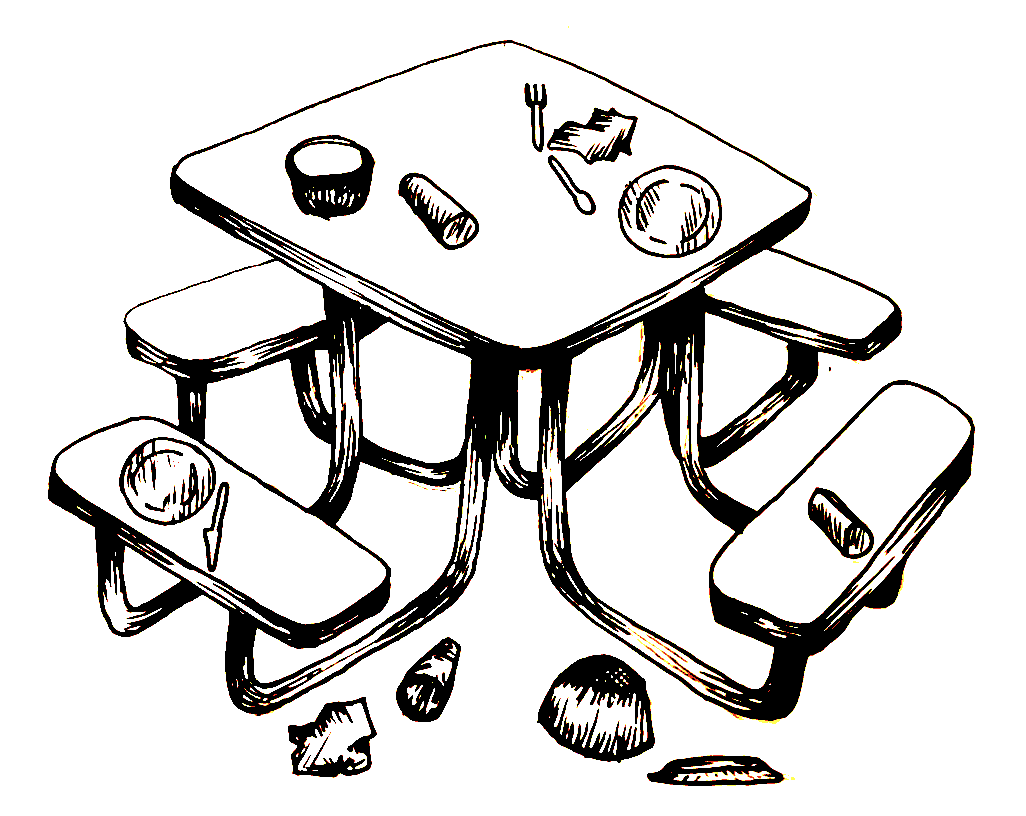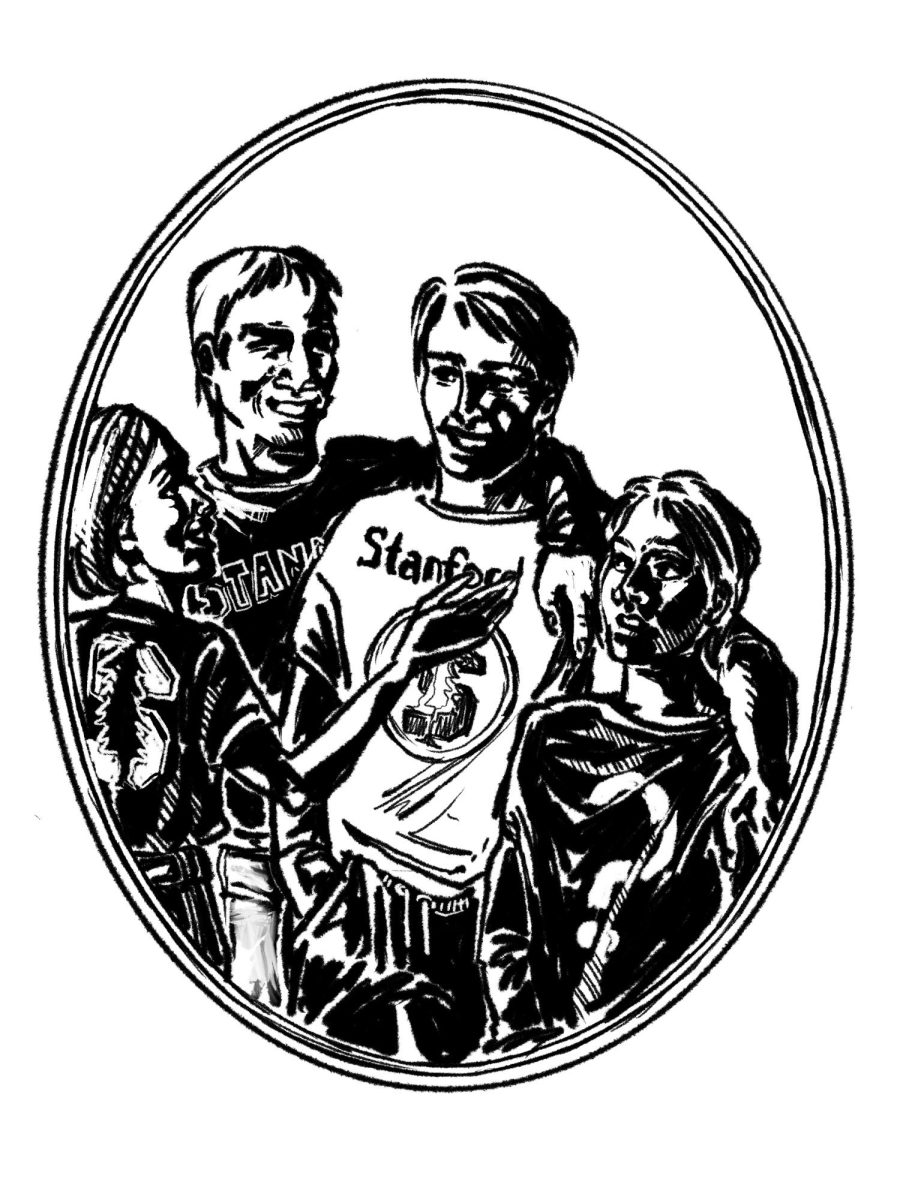Walk around campus, and chances are you’ll run into reusable red and black bowls. But some are not in the dirty dish rack of the cafeteria, where they should be found; instead, they’re abandoned on the quad, sprawled across tables and even under cars in the parking lot. In fact, Director of Dining Services Thien Hoang needed to purchase $5,000 worth of new reusable bowls in early February in order to replenish the hundreds that had been lost over the past two semesters.
According to Hoang, who has been at Menlo for five years, the bowl loss rate is 10 to 15 percent every year — significantly higher than Stanford University’s six percent loss rate, which Hoang observed when he spent 13 years there as director of dining services.
Students’ tendency to lose their reusable dishes has affected Menlo Dining’s sustainability efforts; at one point, the dining services department tested removing disposable cups as an option, but the cafeteria ended up losing more of the reusable cups and decided the strategy was not effective. “It’s gotten a little worse after COVID because everyone was so used to using disposable everything, […] and [students] ended up getting lazier to bring back the non-reusable stuff,” Hoang said.
Senior Izzy Klugman, leader of the Menlo Climate Coalition, agrees with Hoang on the importance of students changing their clean-up habits. “I just feel like we need to get over, like the uncomfortable[ness] or the thinking that it’s too much work to, just like, walk your bowl back into the cafeteria,” Klugman said.
Hoang refrains from repurchasing bowls unless the supply is low. This is the first time Hoang has had to restock bowls this school year, with each bowl costing $10 and 500 purchased in total. Each day, Menlo Dining ensures enough bowls are available to serve both the Middle and Upper School lunches without requiring washing in between the two periods.
Additionally, since early March, Hoang and the cafeteria staff have started to implement only giving out second servings to those who have already finished what is on their plate, a decision that was made after Hoang noticed a lot of food in the trash. Hoang believes that the most important aspect of improving Menlo’s high bowl loss rate and food waste situation is to continue teaching kids about sustainability from a young age.
Hoang suggests that a hands-on approach is the best way to raise awareness about sustainability at lunch. “Don’t just teach them from the books. Take them out to beach clean-ups and tide pools to see hands-on […] how bad it is,” Hoang said.
History teacher and junior class dean Matthew Nelson expressed similar views on the need to raise student awareness on cleaning up after themselves. Nelson believes that students have the most power to change the culture within a school and spread messages about being more mindful and responsible about their own utensils and how much food they put on their plates.
However, Nelson finds that the advocacy clean-up system is the most effective solution Menlo has tried so far. Approaches such as leaving trash on the quad for students to clean up on their own or simply encouraging students to pick up after themselves didn’t have an effect, Nelson noted.
“The advocacy system creates […] accountability, [and although it’s not perfect], it’s the best that we’ve had since I’ve been the student life dean for six years,” Nelson said. He hopes students will develop a sense of responsibility towards lunch cleanup, and suggested that the student council create funny and engaging videos surrounding lunch cleanup.
Klugman also finds the rolling carts for collecting dirty dishes — an essential part of the advocacy cleanup system — particularly helpful. “I think that just having carts that people bring out to the quads to make it more accessible for people is just [more convenient compared to] having to take it into the cafeteria,” Klugman said.
Although Klugman believes food waste is the biggest sustainability issue at Menlo, she has noticed that there has been less food waste compared to her freshman year. She also encourages students to continue to use reusable utensils and pick up after themselves at lunch.
The Menlo Climate Coalition’s mission is to inspire Menlo students to make a difference, both in the Menlo community and in the wider community around sustainability. Klugman hopes that more awareness about lunch cleanup can be raised through events such as Eco-Act Week, which the Menlo Climate Coalition will host right after spring break. One of the main activities of the week will include a farmer’s market with outside vendors, organized with the help of Hoang — through different themes for each day (one of which is food-themed) and fun activities, Klugman hopes to make environmental responsibility more engaging for students.
Similarly to Klugman, Nelson believes that it’s vital that students develop responsibility around picking up after themselves. “We’re forgetful sometimes, […] but to chalk it up it’s about a sense of responsibility for the type of campus and climate we want to have,” Nelson said.








